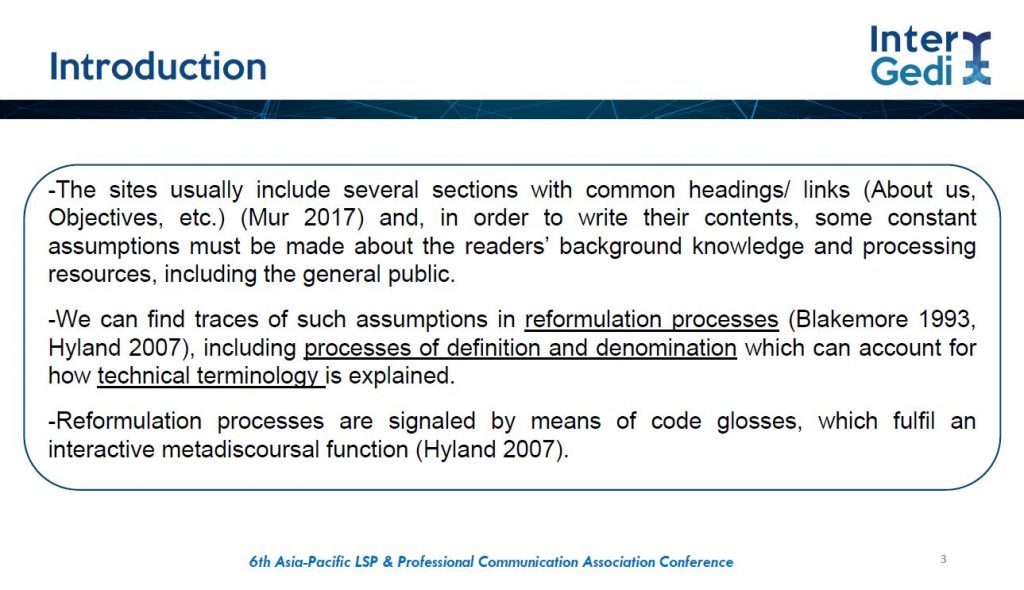LSPPC6 2021: (4/4) Silvia Murillo discusses in our panel the usage of terminology in research project websites

Our colleague Silvia Murillo closed the panel “Analysing Scientific Digital Discourse: The case of research project websites in international contexts” that the InterGedi research group presented at the 6th Asia-Pacific LSP & Professional Communication Association Conference organized by the City University of Hong Kong.
In her talk, “An Exploration of the Treatment of Terminology in International Project Websites”, Silvia Murillo analysed the role and relevance of terminology in the various web sections and pages within research project websites. She concluded that the reformulation processes that were observable in this object of inquiry mainly had to do with processes of definition and denomination, in the attempt made by research groups to make specialised knowledge and information about their projects more accessible to a heterogeneous audience. Based on a corpus-based study, she identified that code glosses were the main metadiscoursal feature employed to ensure such processes.
You can read about the abstract for her communication below:
An Exploration of the Treatment of Terminology in International Project Websites
In today’s digital world, project websites have become a prominent way for research groups to achieve visibility. The purposes of such websites are manifold and interrelated (Mur, 2019): to offer accountability, to self-evaluate the research positively (Lorés, 2020) and to disseminate it for a wide array of readers, including scholars in the field, scholars in other fields, and also the general public. In relation to this dimension of dissemination, in this paper I seek to explore the treatment of terminology in European project websites, that is, how terms and concepts are introduced and explained (Meyer & Mackintosh, 2000; Mayor Serrano, 2003). Specifically, I will focus on the use of definitions/denominations, and on the use and development of abbreviations/acronyms. Such procedures are deployed to establish the conceptual fields of their projects and also for self-branding purposes. In order to do this, I will carry out a qualitative and quantitative analysis of 10 European project websites (Horizon, 2020 research programme), from the EUROPRO web corpus compiled by our research group. I will focus on the sections of the websites used to state the general objectives of the projects and to describe their main activities/outcomes. I will explore the structural (i.e., the metalinguistic elements used, and the use of parenthetical and non-parenthetical cases) and semantic aspects (i.e., whether abbreviations/terms are of general use or have been specifically created for the research) of the treatment of terminology. This study provides some insights regarding the writer-reader relationships in these websites. On the one hand, the treatment of the terminology reflects how web compilers want their readers to understand what the projects are about, for informative (and accountability) purposes, and, on the other hand, it reflects how they use the websites for self-branding and promotion.
